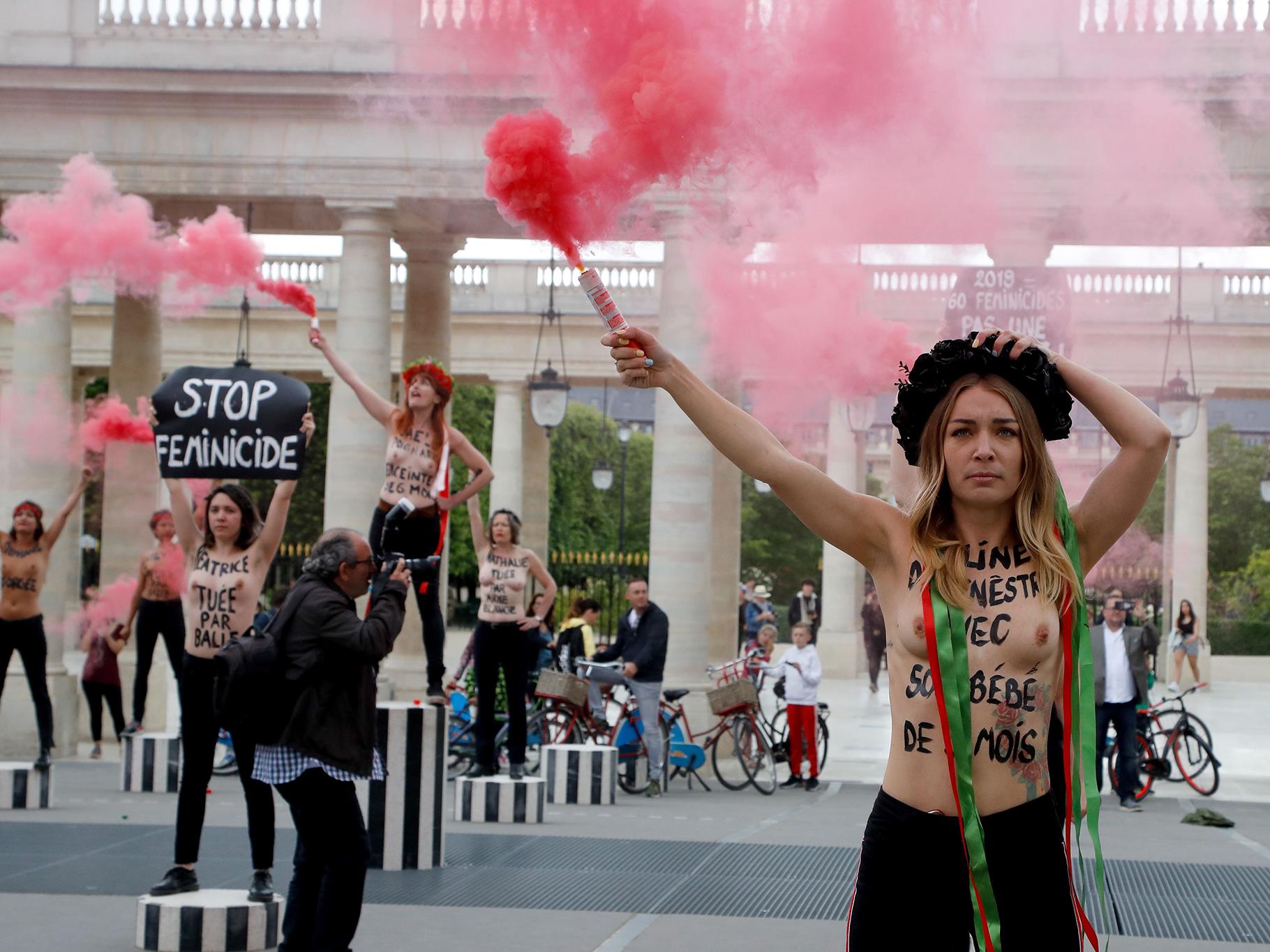The nocturnal heroines drawing attention to the rising rates of femicide in France
Bertille Duthoit spends a night putting up posters with Collages Feminicide, a group forcing Parisians to confront the issue of women’s murder around the world

Meet us in front of the station, we’ll be making the glue,” is the text I receive from Jeanne, a student in Paris and a member of the feminist group Collages Feminicide. A group usually composed of 200-300 women in Paris, that tonight become three – four if you include me – on a mission to raise awareness for the ongoing femicide epidemic in France by tagging walls with slogans around the supposed city of love.
When I arrive, Jeanne is indeed making glue; it’s what we’ll use to stick up slogans they prepared at home: “Love ≠ Kill”, “She left him, he killed her”, “We never kill for love” or “Not one more” are a few that Parisians will read tomorrow morning while walking to work. This is not street art, they are not trying to spread love or any philosophical message as artists would do: they are together to denounce the crime of femicide – where a woman is murdered because she is a woman. In other words, it’s a sex-based hate crime.
Since January, 124 women have been killed by their partner; three more than in 2018. “The goal is that the government will provide funds to change these problems. But it’s also to alert the young and old to this issue and generate actions such as creating accommodation for women who can’t go home,” says Philomene, another student, who participates in the movement two nights a week. “It’s also for the charities who are working to change things. Some of them are just not heard. There are people with expertise who can provide statistics but no one hears them – or wants to listen. It’s absurd.”
Subscribe to Independent Premium to bookmark this article
Want to bookmark your favourite articles and stories to read or reference later? Start your Independent Premium subscription today.
Join our commenting forum
Join thought-provoking conversations, follow other Independent readers and see their replies